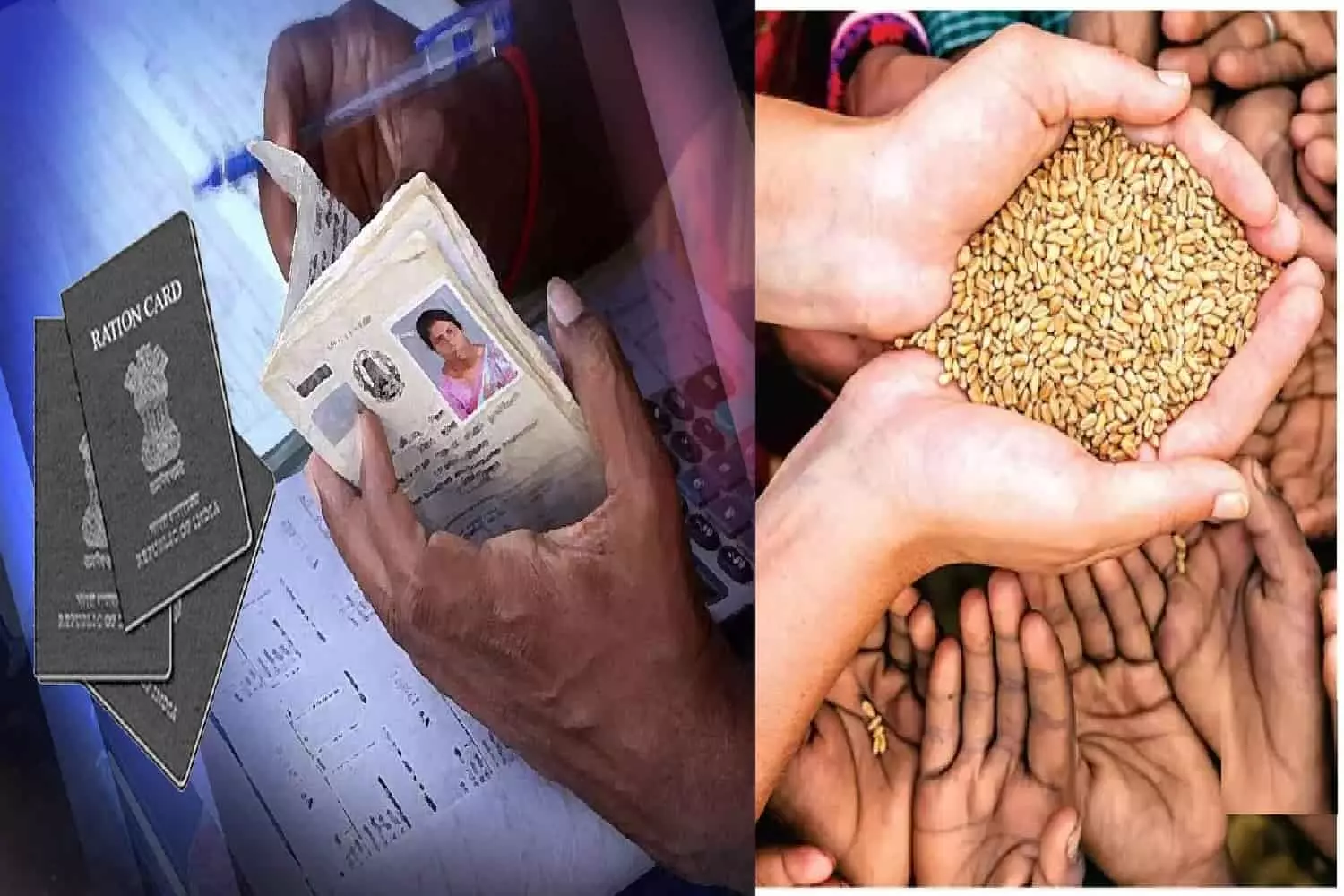Under the Pradhan Mantri Garib Kalyan Anna Yojana, poor families receive 5 kg of food grains each month.
The Union Cabinet on November 29 approved a proposal to extend the Pradhan Mantri Garib Kalyan Anna Yojana (PMGKAY) to provide free foodgrains to around 81 crore poor people for five more years until December 2028.
At a Cabinet briefing, Union Minister Anurag Thakur said the extension will cost the exchequer around Rs 11.8 lakh crore. The extension will be applicable from January 1, 2024. A decision in this regard was taken in the meeting of the Cabinet, chaired by Prime Minister Narendra Modi, on November 28.
Earlier this month, addressing an election rally in Chhattisgarh, PM Modi said the Centre would extend the free ration scheme for five years.
During the briefing, Thakur said there will be no shortage of funds as well as no issues with procurement on account of extending the free ration scheme for 5 years. On concerns around inflated food subsidy bills as a result of this extension, Thakur said money or budget is not a problem for the central government.
The PMGKAY was initiated in April 2020 to assist the poor during the Covid-19 pandemic for three months but was later extended. Under this free ration scheme, poor families receive 5 kg of food grains each month.
In December last year, the Centre decided to subsume the PMGKAY, launched in 2020 to provide additional food grains free of cost, with the National Food Security Act (NFSA). Under the NFSA, up to 75 per cent of the rural and 50 per cent of the urban populations are covered under two categories—Antyodaya Anna Yojana (AAY) and priority households.
During the Budget 2023 announcements, Union Finance Minister Nirmala Sitharaman stated that the Centre will bear Rs 2 lakh crore for the entire year under the PMGKAY. Prior to the 5-year extension, the free food grain plan was due to end on December 2023.
The extension is expected to offer relief to consumers at a time when the the fall in food inflation has been limited. The central government has already taken a raft of measures over the last couple of years to ease price pressures, ranging from export bans on wheat, rice, and onion to the sale of discounted tomatoes, among others.
Data released on November 13 showed India’s headline retail inflation rate fell to a five-month low of 4.87 percent in October, staying within the Reserve Bank of India’s (RBI) tolerance band of 2-6 percent for the second consecutive month. However, food inflation was little changed at 6.61 percent, having come in at 6.62 percent in September.
Moneycontrol had reported on November 9 citing a senior government official that the decision to extend the free food grain plan will have a limited impact on the fiscal deficit for FY24 and the additional spending for the current fiscal given it is a three-month extension is to the tune of Rs 15,000 crore.
Despite the additional spending on account of subsidies, the Centre has been confident of meeting the fiscal deficit target of 5.9 percent of gross domestic product (GDP) for 2023-24.
